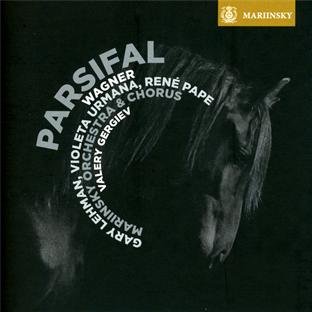Wagner Parsifal
The maestro’s ability to bend the Mariinsky musicians to his will is never in doubt
View record and artist detailsRecord and Artist Details
Composer or Director: Richard Wagner
Genre:
Opera
Label: Mariinsky
Magazine Review Date: 13/2010
Media Format: Super Audio CD
Media Runtime: 0
Mastering:
Stereo
DDD
Catalogue Number: MAR0508

Tracks:
| Composition | Artist Credit |
|---|---|
| Parsifal |
Richard Wagner, Composer
Evgeny Nikitin, Amfortas, Baritone Gary Lehman, Parsifal, Tenor Mariinsky Chorus Mariinsky Orchestra Nikolai Putilin, Klingsor, Bass René Pape, Gurnemanz, Bass Richard Wagner, Composer Valery Gergiev, Conductor, Bass Violeta Urmana, Kundry, Mezzo soprano |
Author: Arnold Whittall
Mannerism might also be the term for those places in all three acts where Gergiev opts for stateliness rather than flow; deliberation seems to be at war with the impulsiveness evident elsewhere. The earlier stages of Gurnemanz’s Act 1 narration, as well as his lament for the slain swan, Kundry’s most tender music in Act 2 and the lead-up to Gurnemanz’s anointing of Parsifal in Act 3 are held back in ways which seem counterproductively stolid – all the more so since the finest parts of the performance are so compelling: the later stages of Act 2 are as powerfully energised and dramatically gripping as any on disc, while the final apotheosis of the whole work is magnificently sustained. Gergiev’s mastery of the orchestral melos and his ability to bend the Mariinsky musicians productively to his will are never in doubt: rarely, if ever, has the first fortissimo from the brass in the Act 1 Prelude blazed out with such sonorous gravity as it does here. Nevertheless, I wasn’t instantly persuaded by some of the decisions about balance. While the solo singers are always placed well forward, the off-stage music can be distant to the point of near-inaudibility. And such is the burnished strength of the brass, the strings can seem to lack body by comparison, with more restrained passages – Parsifal’s entrance in Act 3, for example – lacking some degree of presence, probably because of the extremely wide dynamic range in use. These are, however, very much first-hearing reactions, which greater familiarity – “learning” the recording, in fact – could change. Gergiev’s Wagner was always going to be different from that of conductors schooled in other traditions, whether German, French or American, and what is beyond question, even at first hearing, is the remarkable effect of the conductor’s interaction with a cast which is not exclusively Russian. Certainly, Nikitin, Putilin and also the hugely imposing Alexei Tanovitski (Titurel) need fear nothing by comparison with their non-Russian colleagues. If this is indeed a “mannered” Parsifal, in the way that those conducted by Knappertsbusch, Kempe, Barenboim or Thielemann are not, it has an imaginative force, overall, which pushes any hints of contrivance to the musical and dramatic margins.
Would a live, staged performance with this cast, conducted by Gergiev, be the same? Perhaps, one day, we will be able to find out.
Discover the world's largest classical music catalogue with Presto Music.

Gramophone Digital Club
- Digital Edition
- Digital Archive
- Reviews Database
- Full website access
From £8.75 / month
Subscribe
Gramophone Full Club
- Print Edition
- Digital Edition
- Digital Archive
- Reviews Database
- Full website access
From £11.00 / month
Subscribe
If you are a library, university or other organisation that would be interested in an institutional subscription to Gramophone please click here for further information.




